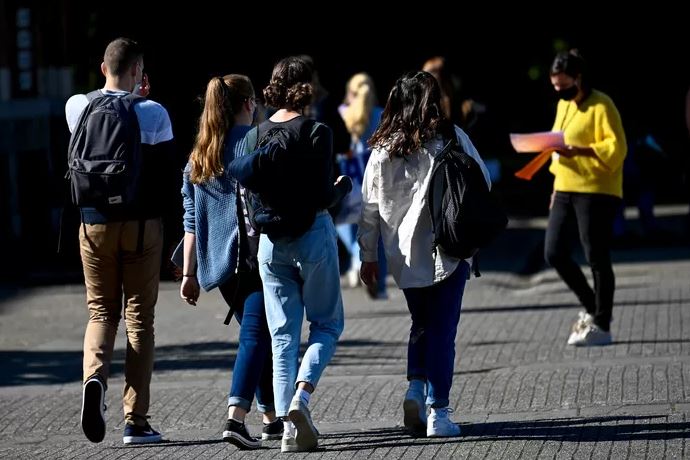Research has already shown that the coronavirus pandemic and not attending school in person will have a detrimental impact on the overall well-being of children and young people. A recent report has now calculated the cost they will pay for it.
School closures during the Covid-19 pandemic and the effect this has had could result in $17 trillion (just over €15 trillion) in lost lifetime earnings for today’s students. The findings were published in a report by the World Bank, the UN Educational, Cultural and Scientific Organization (UNESCO) and the UN Children’s Fund (UNICEF).
The projection far exceeds the $10 trillion (some €8.85 trillion) estimated a year ago as the impact is found to be more severe than previously thought.
Worldwide school closures
While schools are reopening and in-person classes can largely go ahead in Belgium – where the announcement that children from the ages of six will have to wear face masks at school resulted in parents protesting outside school gates in Belgium – schools have remained closed for millions of children across the world, even 20 months after the start of the pandemic.
According to the report's findings, some of these children may never return to school.
'The potential increase of ‘learning poverty’ might have a devastating impact on future productivity, earnings, and well-being for this generation of children and youth, their families, and the world’s economies,' Jaime Saavedra, World Bank Global Director for Education, stated in the report.
Dropping attainment
The report stressed that real-time data now corroborates simulations for how school closures result in significant learning losses globally.
Previous research in Belgium affirmed that learning achievements – a student’s level of success in learning subject matter based on scores – are not as resilient as was hoped following the pandemic, highlighting disruptions to education that researchers said will have long-term consequences.
'Lower learning outcomes are worrisome because lower educational outcomes have previously been associated with several long-term issues, such as lower wages and lower chances of employment,' the Belgian study stated.
Related News
- Schools should be the last to close, says Flemish Education Minister
- 'You are not responsible for Covid', Education Minister tells children in Wallonia
- 'Leave little children alone': protest against face masks from age of 6 at school gate
The learning losses that occurred varied across countries and subjects. In Belgium, as a result of face mask-wearing, test results in language subjects dropped. Meanwhile, in states such as Brazil, Pakistan, India, South Africa and Mexico, substantial losses were highlighted in maths and reading skills.
Fighting inequalities
As it did in most other areas in society, the pandemic also further exacerbated the existing inequalities in education, with children from low-income households, those with disabilities, as well as girls, less likely to access remote learning.
With less than 3% of global government stimulus packages allocated to education, the report underlines the need for greater funding. It adds that reopening schools and keeping them open must remain a top and urgent priority everywhere to 'minimise the scars on this generation.'
Meanwhile, it stressed that lessons can be learned from the pandemic and the effects it had on education systems globally, as well as the pre-existing inequalities it has highlighted within this environment.
“With government leadership and support from the international community, there is a great deal that can be done to make systems more equitable, efficient, and resilient, capitalizing on lessons learned throughout the pandemic and on increasing investments,” Stefania Giannini, UNESCO Assistant Director-General for Education, said.

